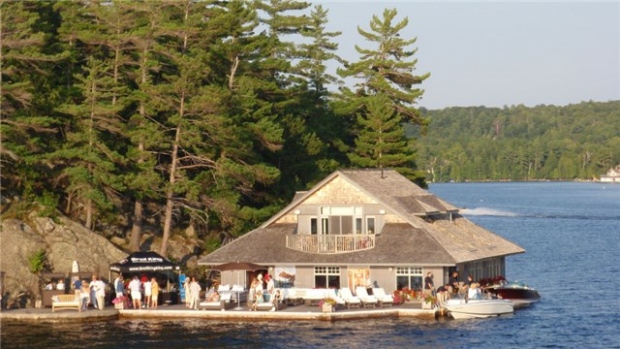May 20, 2016
Equal doesn’t equal fair: How to divvy up the family cottage

ANALYSIS: We are about to embark on the first long weekend of the spring, and many families will be enjoying time together at the family cottage. It is without a doubt the cottage is the most emotional asset a family can have. I reached out to Pavilion Investment House’s Marshall McAlister, a CFA, Private Wealth Counsellor, Principal to ask him how he deals with this tricky situation. Here's an edited version of our conversation:
Client story
When passing on assets to the next generation – whether it is a property or a business – we often find that clients struggle with the decision between providing a ‘fair’ solution versus an ‘equal’ solution. We have a client whose cottage transition plan was to give 20 per cent of the cottage to each of his five kids. Only two of his children use the property, and one of his children lives outside of the province. Only slightly jokingly we asked him if he hated his children. Giving the cottage equally to five children who have vastly different interests, means and access to the property is setting them up for failure. It may have been an ‘equal’, but it was hardly a fair or sensible solution.
Our advice to this client and to other Canadian cottage owners is to have a formal family meeting around the transition of the cottage property. Send out a formal letter at least a month before the meeting to establish the agenda. This meeting will be a chance for each member of the family to express their wishes around the property. While there may be stress around having this conversation, we believe that children are looking for leadership from their parents on these types of transitions, and having transparency around this process will be appreciated.
In our professional experience, these meetings are milestones in the family story and will be remembered fondly. While many parents see their cottages as a legacy for the family, the open and personal communication that comes from a family meeting is the true legacy. Decades later, when the inheritors of the cottage have to pursue the same conversation with their children, this original family meeting becomes an invaluable experience.
Taxes
While taxes and probate costs in some provinces can guide financial planning strategies, we do not see many of our high net worth clients worried about these implications.
Capital gains
In the majority of our cases, the primary residence exemption will be allocated to the family home and not the cottage. This may not be the case in every situation and reviewing the capital gains tax prior to selling with your accountant would be strongly advised. Canadians can shift the primary residence exemption between properties to their advantage.
Cottage owners should diligently save all capital expenses associated with the cottage, to actively increase the cost base of the property. This will lessen the capital gains taxes at the eventual sale or interfamily transfer of the property.
Owners who expect to pass the property on to family can also look to purchase life insurance to cover off the capital gains tax. In some cases, the capital gains taxes would be so large that the cottage would need to be sold to cover the taxes owed. While there could be a very expensive policy cost associated with insurance, this could be a useful planning tool to cover off a tax liability.
Trust planning
In some cases, it may be wise to establish a trust to own the family cottage. This trust can have multiple beneficiaries and be set up during the cottage owner’s life. Owners can then work on the control and management issues on the property while alive and able to monitor things. This trust may have a tax advantage as the potential capital gains on the property can be delayed for as long as the trust holds the property, subject to the deemed disposition rule forcing a sale every 21 years. Tax rules are complicated and specific and we strongly recommend professional advice.
Costs of upkeep
The costs to maintain a second property like a cottage can become more and more cumbersome over time. In addition, as successive generations add more owners to the mix, negotiations around who will cover these costs can add strain to family relationships.
A maintenance fund
If parents have the financial means, it can often make sense to set up a separate investment fund that will cover some or all of the annual maintenance costs of the cottage. Whether this is done inter vivos, or in an estate plan, will depend on the goals of the parent and family.
A management agreement
If multiple children, and eventually grandchildren, want to keep the cottage in the family it may be worthwhile to formalize how decisions will be made. Paying for costs is a sensible thing to have in the agreement, but it can also include guidance on how to decide when each family can spend time at the cottage, or how family members can sell their share if they no longer have the means or desire to enjoy cottage life. If a maintenance fund has been set-up, this cottage management agreement can document who will oversee the fund and how they will report to the family on those funds. Annual family meetings are a great opportunity to set up and review this document, as well as any changes to the cottage maintenance fund.






